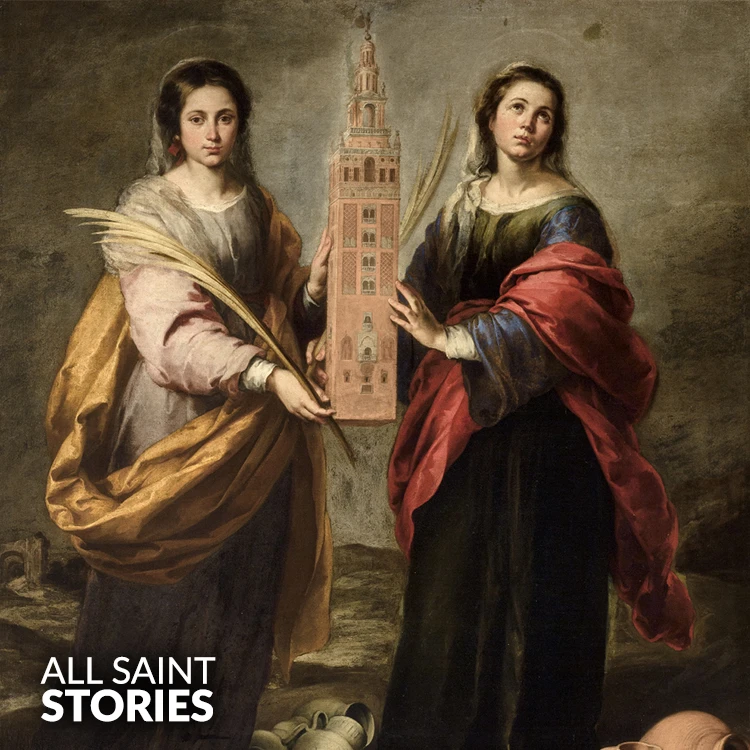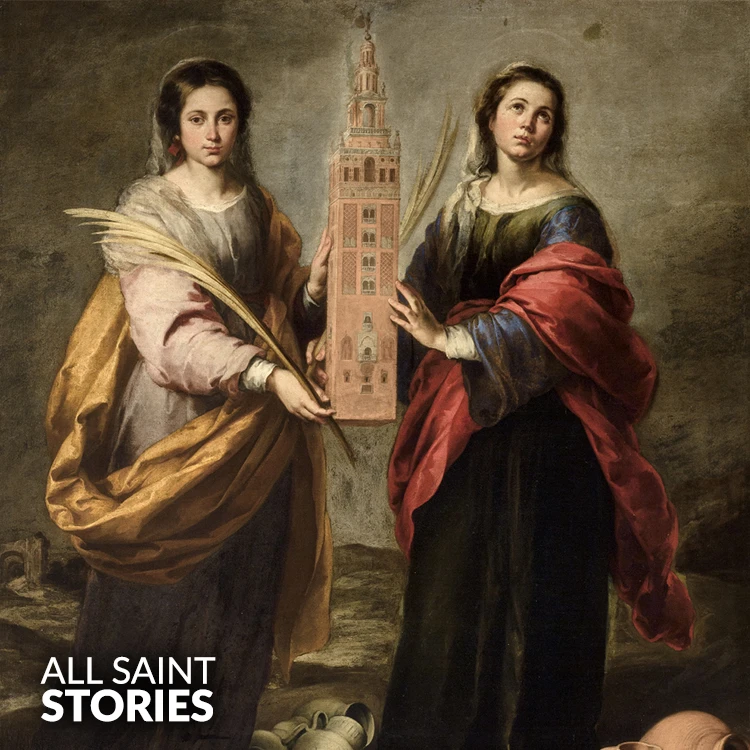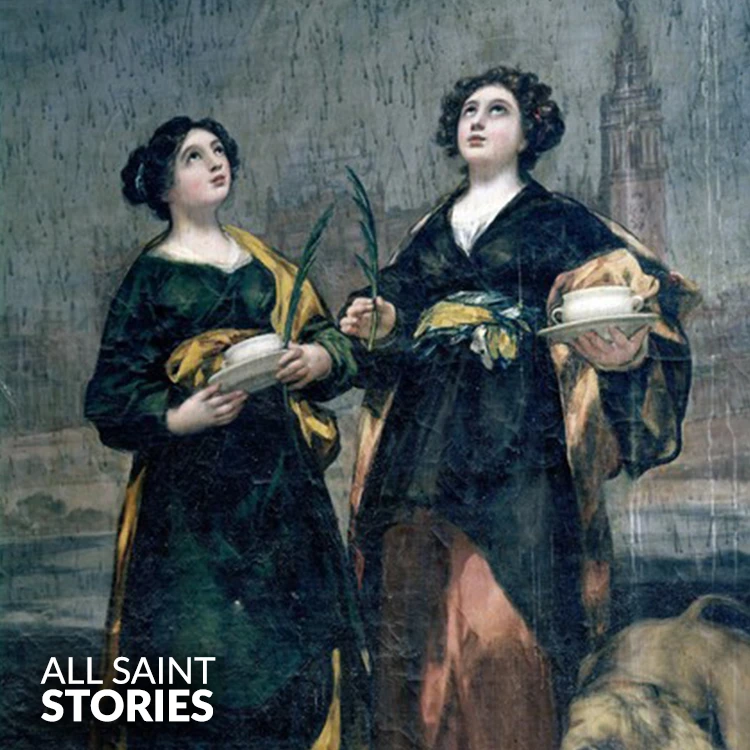"Dear Saints Justa and Rufina, You faced trials and persecution with great faith and courage. Please intercede for us, that we may remain steadfast in our faith, and find strength in your example of holiness. Guide us through life's challenges, and help us live with love, hope, and perseverance. Amen."
ST. JUSTA AND RUFINA
ST. JUSTA AND RUFINA

St. Justa and St. Rufina were sisters from Seville, Spain, who lived during the 3rd century. They were devout Christians and worked as potters. When they refused to offer their wares to a pagan festival, their goods were destroyed, and they retaliated by breaking the idols. This act led to their persecution under the Roman governor Diogenianus. Justa died from torture, while Rufina was later executed. They are venerated as the patron saints of Seville and potters, symbolizing unwavering faith and courage.
St. Justa and St. Rufina were Christian sisters from Seville, Spain, who lived during the 3rd century and became martyrs for their faith. They were born into a humble yet devout Christian family and supported themselves by making and selling pottery. At a time when Roman authorities sought to suppress Christianity, the sisters were known for their strong commitment to their beliefs and refusal to participate in pagan rituals.
The defining event in their lives occurred when a local pagan festival took place in Seville. During the celebration, followers of the Roman gods demanded that Justa and Rufina donate their pottery for the occasion. The sisters refused, as they did not believe in idol worship and saw it as a direct challenge to their faith. Enraged by their defiance, the pagan worshippers retaliated by smashing their earthenware. In response, Justa and Rufina destroyed some of the idols, publicly demonstrating their rejection of paganism.
This act of defiance did not go unnoticed. The Roman governor of the province, Diogenianus, ordered their arrest. The sisters were subjected to severe torture to force them to renounce their Christian faith, but they refused to yield. Justa was reportedly starved to death while imprisoned, enduring immense suffering yet remaining steadfast in her beliefs. Rufina, on the other hand, was subjected to further brutality before being executed, likely by beheading or strangulation.
Following their deaths, local Christians honored them as martyrs, and their reputation for holiness quickly spread. Over time, their veneration grew, particularly in Seville, where they became the city’s patron saints. They are often depicted holding pottery or standing alongside the Giralda, Seville’s famous bell tower, as legend suggests they miraculously protected the city from destruction.
The devotion to St. Justa and St. Rufina remains strong, especially among potters, who see them as their special patrons. Their story continues to be a symbol of unwavering faith and resistance against religious persecution, inspiring generations of believers to stand firm in their convictions.
Video Not Found
The information on this website is compiled from various trusted sources. While we aim for accuracy, some details may be incomplete or contain discrepancies.
If you notice any errors or have additional information about this saint, please use the form on the left to share your suggestions. Your input helps us improve and maintain reliable content for everyone.
All submissions are reviewed carefully, and your personal details will remain confidential. Thank you for contributing to the accuracy and value of this resource.
Credits & Acknowledgments
- Anudina Visudhar (Malayalam) – Life of Saints for Everyday
by Msgr. Thomas Moothedan, M.A., D.D. - Saint Companions for Each Day
by A. J. M. Mausolfe & J. K. Mausolfe - US Catholic (Faith in Real Life) – Informational articles
- Wikipedia – General reference content and images
- Anastpaul.com – Saint images and reflections
- Pravachaka Sabdam (Malayalam) – Saint-related content and insights
We sincerely thank these authors and platforms for their valuable contributions. If we have unintentionally missed any attribution, please notify us, and we will make the correction promptly.
If you have any suggestion about ST. JUSTA AND RUFINA
Your suggestion will help improve the information about this saint. Your details will not be disclosed anywhere.
© 2026 Copyright @ www.allsaintstories.com





 English
English
 Italian
Italian
 French
French
 Spanish
Spanish
 Malayalam
Malayalam
 Russian
Russian
 Korean
Korean
 Sinhala
Sinhala
 Japanese
Japanese
 Arabic
Arabic
 Portuguese
Portuguese
 Bantu
Bantu
 Greek
Greek
 German
German
 Dutch
Dutch
 Filipino
Filipino